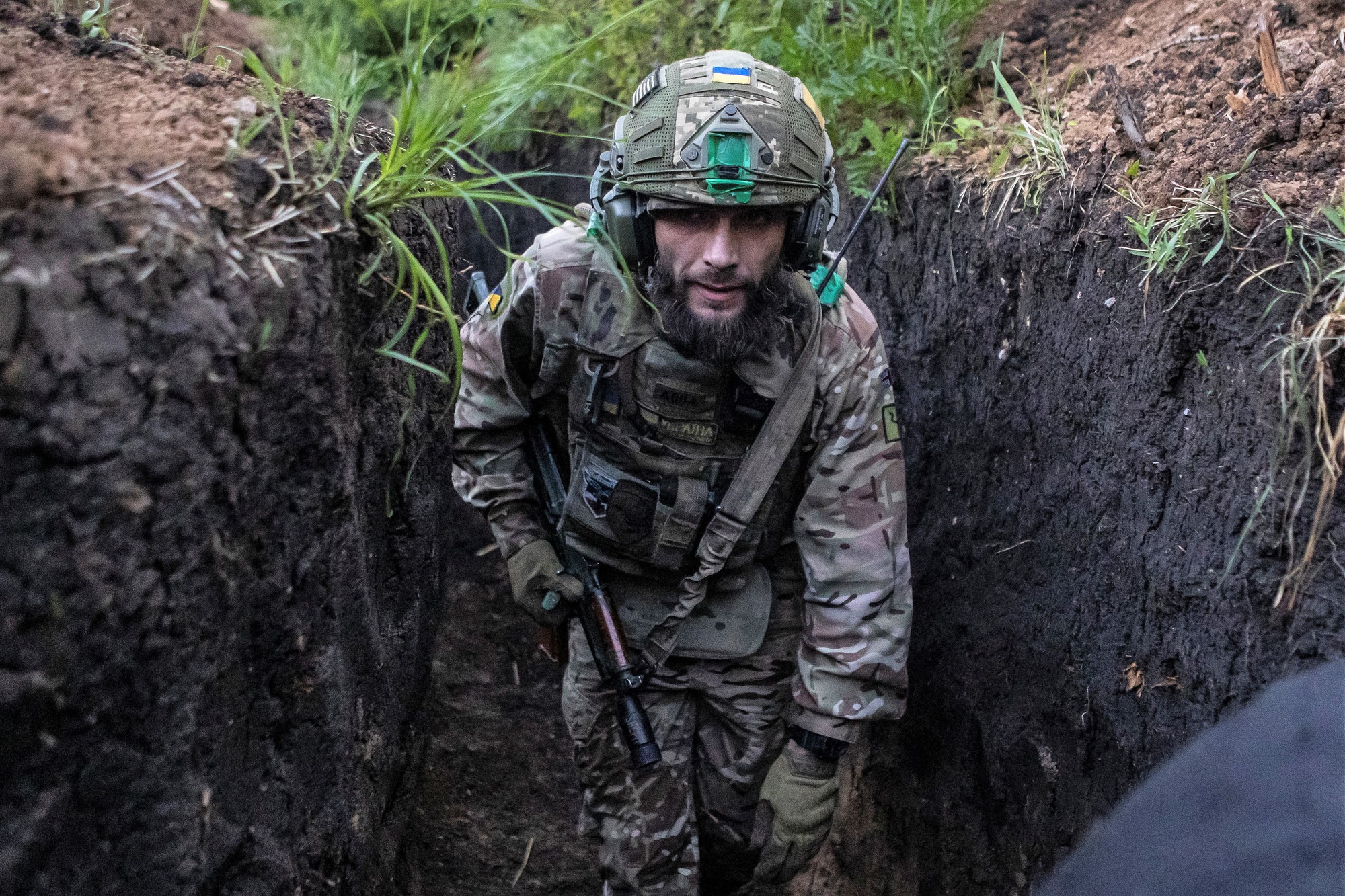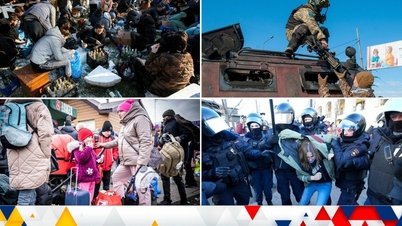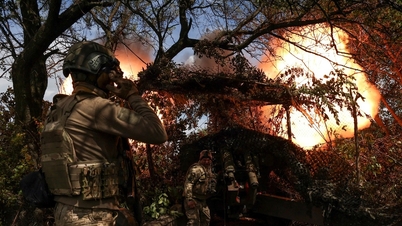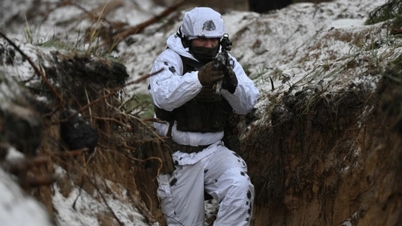
A Ukrainian serviceman moves along a trench near the frontline city of Bakhmut on May 23.
Wagner group withdraws from Bakhmut
According to Reuters, the head of the Russian mercenary group Wagner Yevgeny Prigozhin posted a video on May 25 announcing that Wagner had begun withdrawing from the city of Bakhmut and transferring positions there to regular Russian forces.
"We are withdrawing units from Bakhmut. From 5:00 a.m. on May 25 to June 1, most of the units will retreat to their bases in the rear. We are handing over our positions to the military," Prigozhin said.
In the video, Mr. Prigozhin is seen wearing combat gear and standing next to a damaged residential area. Earlier on May 20, Mr. Prigozhin announced that he had taken control of Bakhmut.
Wagner leader also said that this force would be ready to return to Bakhmut if the Russian regular army could not control the situation.
The transfer of Wagner positions in Bakhmut to Russian troops was confirmed by Ukrainian Deputy Defense Minister Hanna Maliar. Maliar said Russia had replaced Wagner units with regular troops on the outskirts of Bakhmut, but Wagner forces remained inside the city.
Ukraine shot down nearly 40 Russian UAVs
Reuters quoted a statement from the Ukrainian military on May 25 saying that its forces shot down 36 Russian unmanned aerial vehicles (UAVs) launched in overnight attacks targeting critical infrastructure and military facilities.
According to Ukrainian President Volodymyr Zelensky, this was an "unpleasant night". However, Mr. Zelensky also praised the air defense forces.
"Russia used 36 Shahed UAVs. None of them reached the target. Thanks to the air defense forces for 100% accuracy," Mr. Zelensky wrote on the Telegram messaging app.
Kyiv authorities also said the Ukrainian capital was attacked by several drones, all of which were shot down. This was the 12th attack on Kyiv this month.
Russia deploys nuclear missiles in Belarus
Russia and Belarus signed an agreement on May 25 to formalize the deployment of Russian tactical nuclear missiles on Belarusian territory, TASS news agency reported.
"In the context of extremely serious escalation of threats on the western borders of Russia and Belarus, the decision was made to adopt countermeasures in the nuclear-military sphere," Russian Defense Minister Sergei Shoigu said.
Mr Shoigu said Moscow would retain control of the weapons and any decisions about their use.
According to Mr. Shoigu, Iskander-M missiles, which can carry conventional or nuclear warheads, have been delivered to the Belarusian armed forces and a number of Su-25 aircraft have been converted to be able to use nuclear weapons.
"Belarusian servicemen have been trained at Russian training centers," Minister Shoigu added.
Mr Shoigu also said the agreements signed with Belarus include the procedure for establishing a "special nuclear weapons storage facility on the territory of Belarus".
Tactical nuclear weapons are lower-yield weapons designed for use on the battlefield, as opposed to strategic weapons that can wipe out an entire city. Russia does not disclose how many tactical nuclear weapons it has.
The missile deployment was first announced by Russian President Vladimir Putin in March. Since the start of the special military operation in Ukraine, Putin has repeatedly said that Russia would be ready to use nuclear weapons if necessary to protect its "territorial integrity".
At the time, NATO said the alliance saw no need to adjust its nuclear posture. However, NATO said Mr Putin's nuclear rhetoric was "dangerous and irresponsible".
Source link


































































![[Photo] General Secretary To Lam attends the launch of 3 digital platforms serving the implementation of Resolution No. 57-NQ/TW](https://vphoto.vietnam.vn/thumb/402x226/vietnam/resource/IMAGE/2025/7/2/d7fb7a42b2c74ffbb1da1124c24d41d3)






































Comment (0)